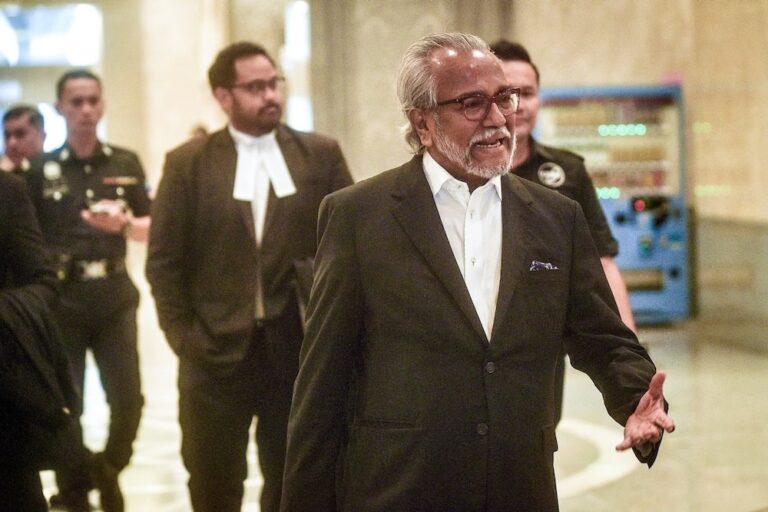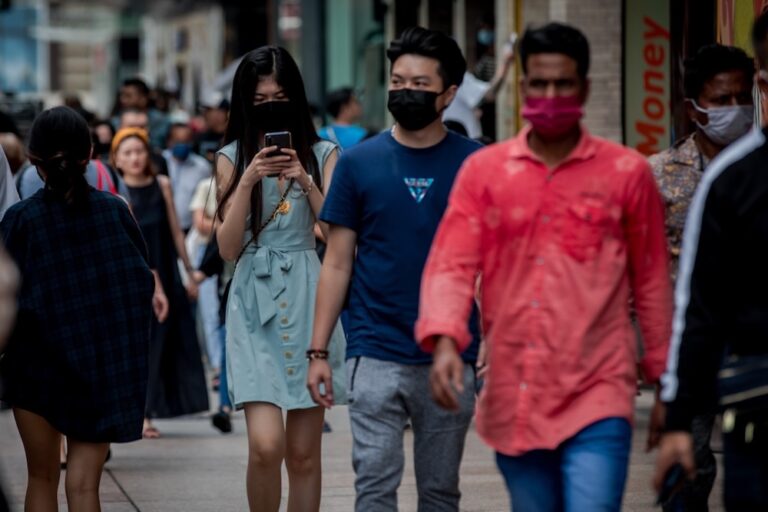Malaysian civil society groups reminded authorities to stop making threats against the media after the National Security Council directed the police and concerned agencies to take 'stern action' against online news outlets that misreport government statements on COVID-19.
This statement was originally published on cijmalaysia.net on 12 April 2020.
Less than 24 hours after the Information Department released an alert on what it described as six categories of “fake news” and its impacts, the National Security Council instructed the police and Communications and Multimedia Commission (MCMC) to take “stern action” against online media that misreport the news.
In announcing the matter yesterday, Defence Minister Ismail Sabri Yaakob singled out online media portals which he claimed had published incorrect and untrue news, particularly on official government statements.
The Centre for Independent Journalism (CIJ) and GERAMM, together with the undersigned civil society organisations (CSOs), view with alarm Ismail’s reported call for action, particularly as the government has shown its failure to understand the distinctions between “fake news” (in itself a false concept), misinformation and disinformation.
We believe that the misunderstanding, made worse by Ismail’s apparent targeting of online media versus other platforms, could lead to misguided actions being taken and ultimately used to justify attacks on freedom of the media. Any action taken to undermine the independence of the media constitutes a major threat to freedom of speech and expression.
Since coming into power and increasingly so during the COVID-19 pandemic, the current Perikatan Nasional (PN) government’s attempts at silencing dissenting voices and undermining media freedom is signalling the downwards spiral of Malaysia into an inconceivable authoritarian and undemocratic regime. This adds to the risk that the government’s continued overreaching and misconception around “fake news” would now lead to further surveillance, invasion of privacy and censorship as well as punitive actions.
We acknowledge the government’s responsibility and efforts to maintain public order when dealing with serious public health issues such as the COVID-19 crisis. It is the government’s duty to educate, inform and warn the public, as necessary, and we note that the Ministry of Health has been expedient and consistent in providing the public with important information, including through the use of social media channels. In these circumstances, the government and key political leaders will undoubtedly come under intense scrutiny and must withstand critique, differences of ideas and dissenting opinion as well as increased demand for greater information transparency. Thus, any censorship and control of media platforms by the government will create an information vacuum.
The media, through its various news and communication portals, is unequivocally critical in ensuring that the high volume of information flow during this pivotal moment is channelled in a factual, timely, reliable and verifiable manner. Undoubtedly, there have been several instances where journalists have been alleged to have misreported or misquoted a particular public official. These are sporadic, and often the error is corrected by the media outlet or through facts and clarification as shared by the public official. In any case, this does not warrant the kind of action as directed by the National Security Council.
A disproportionate response by directing punitive actions against media institutions can be counter-productive as it could shut down the flow of information and related public discourse that is crucial in dealing with public health issues. A holistic and balanced response would include having efficient and broad channels of information from the government and media, accessible and reliable means for the public to verify information and use of reporting facilities within social media applications for misinformation to be removed. The government can also support and empower the media in maintaining independence and a high standard of reporting, including by resourcing independent fact-checking initiatives.
Governments cannot be the sole arbiters of truth by having the power to arbitrarily decide what information can and cannot be in the public domain and what has been “misquoted” or “misreported”. The best way to counter this will be through a transparent and independent self-regulatory body such as the proposed Media Council. It will become central in managing allegations of misconduct by the media and in providing an avenue for the arbitration of public complaints. The Media Council would also be instrumental in building confidence in the media and contribute to the credibility of news media organisations by upholding international standards.
At the same time, the scope of media coverage sets the agenda for public discourse and thus there is a high expectation that the media would be fact-based, responsible and ethical in their reporting. The media has a key role to play in refraining from and preventing the perpetuation of misinformation and disinformation by channelling fact-based news in a timely and analytical manner, including updates by public authorities during this public health crisis. This is critical in countering any myths or misleading facts on the spread of the virus or on related state measures.
During this pandemic, media personnel are amongst the frontliners and face exacerbated risks of infection due to the nature of their jobs. It is the responsibility of the government to guarantee a safe and enabling environment for the media to function and carry out their critical role to publish freely; keep the public fully informed, and; hold the state accountable.
This is not the time to threaten the media!



